Conflict Trends 2023/3
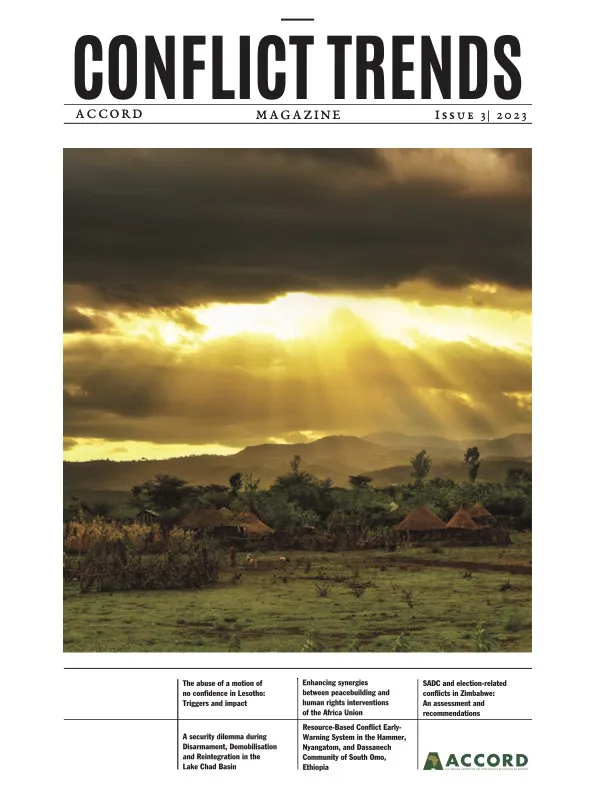
Conflict Trends 2023/2
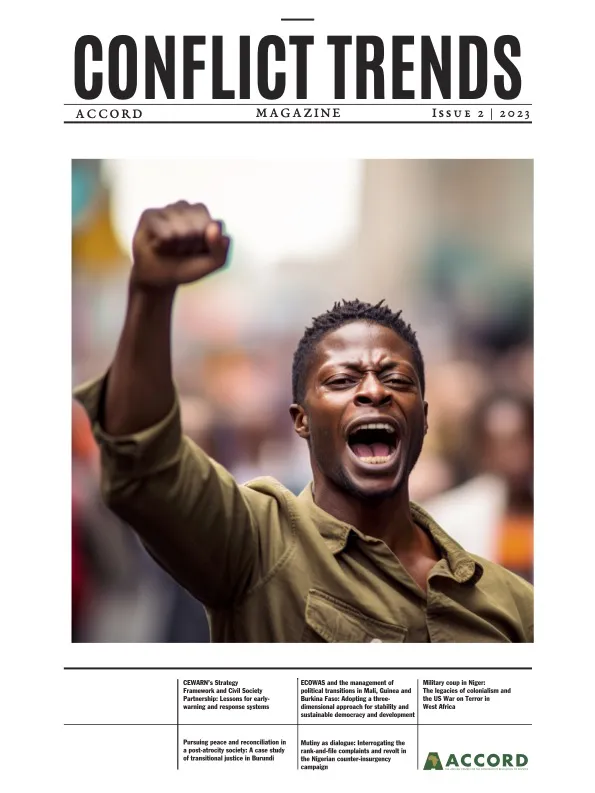
Conflict Trends 2023/1
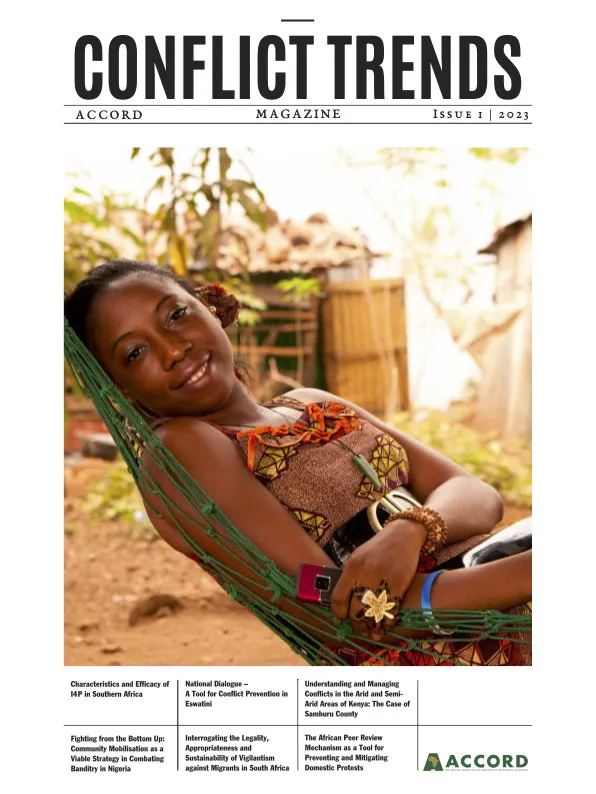
Conflict Trends 2022/2 – Special Edition
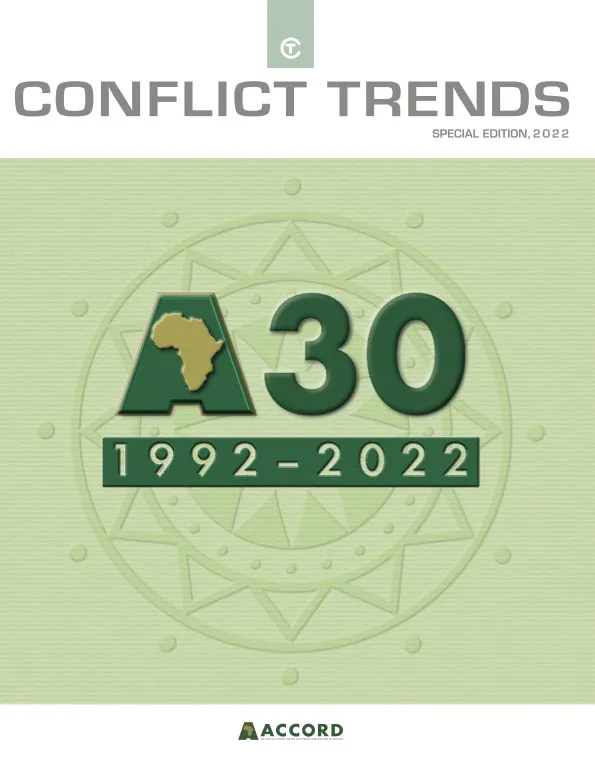
Conflict Trends 2022/1
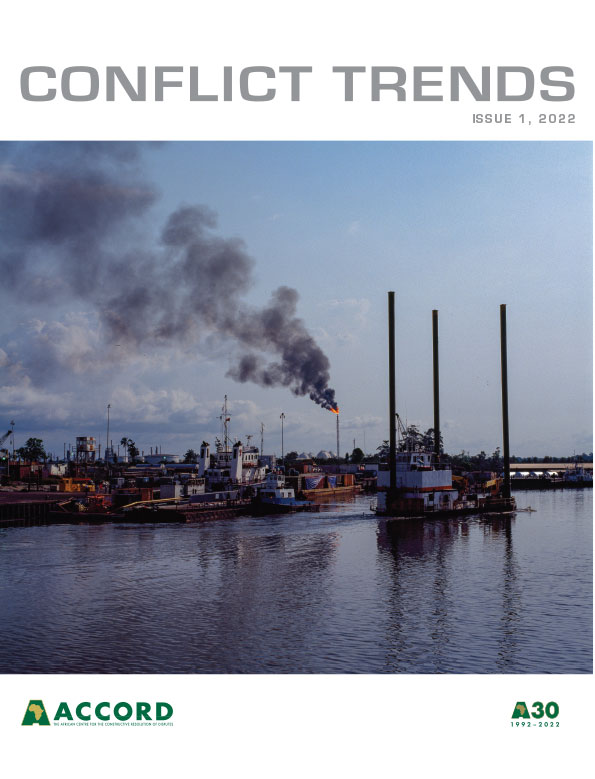
Our rules-based world order, so carefully crafted after World War II, has been violated with impunity on several occasions. Surely the time has come for us to restore the integrity and authority of our global order under the UN, underpinned by the equality of all nations.
Conflict Trends 2021/4
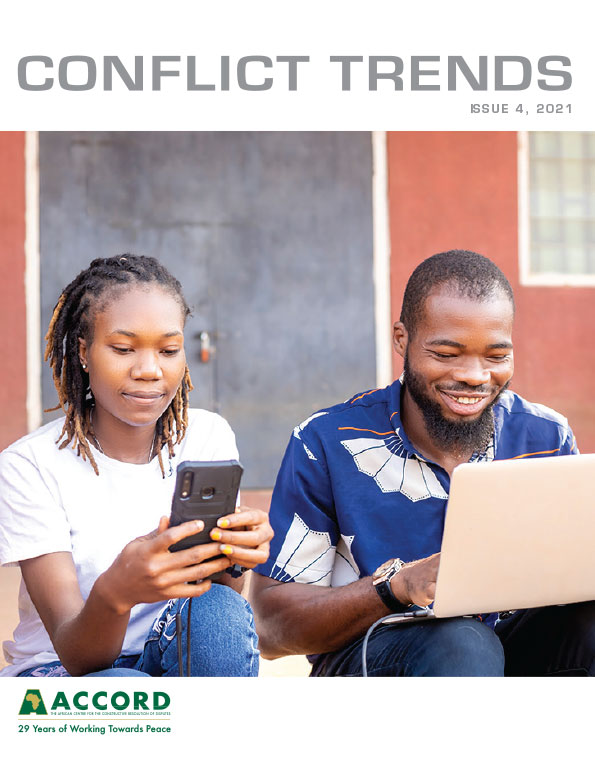
This Issue of Conflict Trends begins with a wider look at the continent and the recent coup epidemic that highlights the challenges of the African Union’s framework on Unconstitutional Changes of Government. Related, but at the regional level, the political and constitutional reforms in West African countries challenges the role of ECOWAS in advancing democracy and stability. In Nigeria specifically, banditry is explained through Situational Action Theory, while Situational Crime Prevention offers practical solutions for the problem. In Burkina Faso, state sponsored defence militias can undermine efforts to combat violence and restore peace, when these militias exacerbate distrust and insecurity. At the larger civil society and community level the interaction of mass media and social media in fueling ethnic violence in Ethiopia, is examined. In addition, building community platforms for resilience, early warning and dialogue are important aspects of Infrastructures of Peace and integrating national peace structures.
Conflict Trends 2021/3
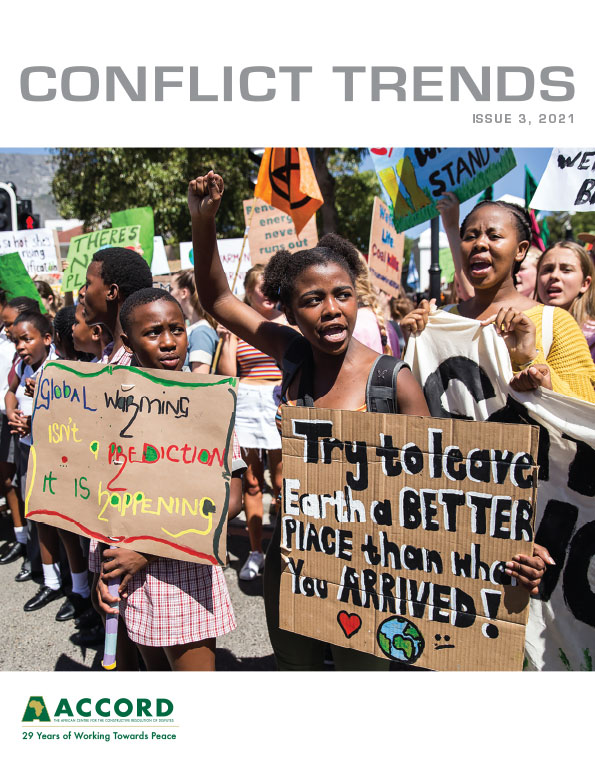
This Issue of Conflict Trends examines the 2021 “Free Zuma” protests and unrest in South Africa and evaluates the underlying political, social, economic and legal issues. Similarly, in Mozambique, any long-term solution for the conflict in Cabo Delgado, must address the significant problem of limited statehood and good governance. In the West Africa region the activities of violent extremist groups in Ghana’s immediate neighbouring countries requires proactive, preventive responses to terrorism in the country. In addition, sustaining peace in the West Africa region requires multi-level partnerships that engage and foster robust relationships among critical actors at key levels. In Baragoi, Kenya the processual analysis of conflict explains the progression from cattle raids to violence and demonstrates how conflicts become enlarged and escalate. Finally, understanding how climate-related security risks undermine peace and increase levels of violence by affecting the drivers of conflict provides further insight into the challenges experienced in Somalia, South Sudan and Mali.
Conflict Trends 2021/2
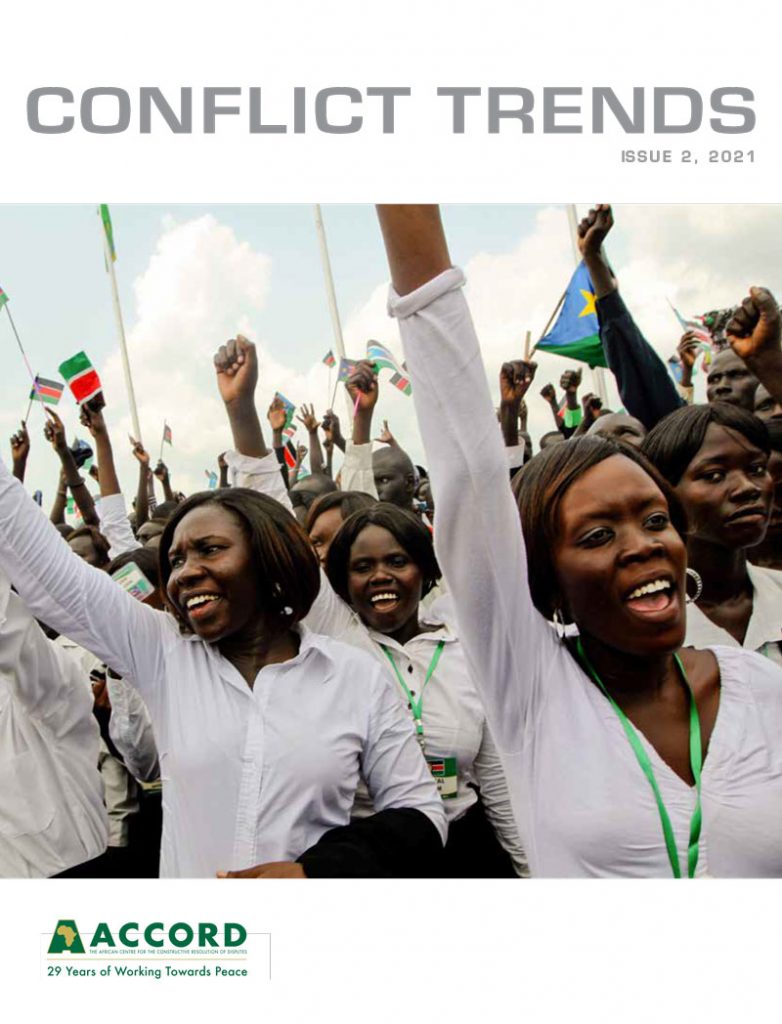
This Issue of Conflict Trends takes a regional perspective in challenging ECCAS to be more effective in Central Africa’s crises and examining Ethiopia’s challenging relationships with its neighbours amidst the country’s domestic upheaval. At the State level South Sudan’s path to democracy is examined and a people-centred government to address the root causes of conflict, is advocated. In addition, the crisis in Mozambique remains ongoing as a military solution does not address the root causes of conflict. We are alerted that the implications of emerging technologies in Africa includes further challenges for peace and security. Finally, Gadaa locates democratic principles and institutions locally, historically and culturally in Africa.
Conflict Trends 2021/1
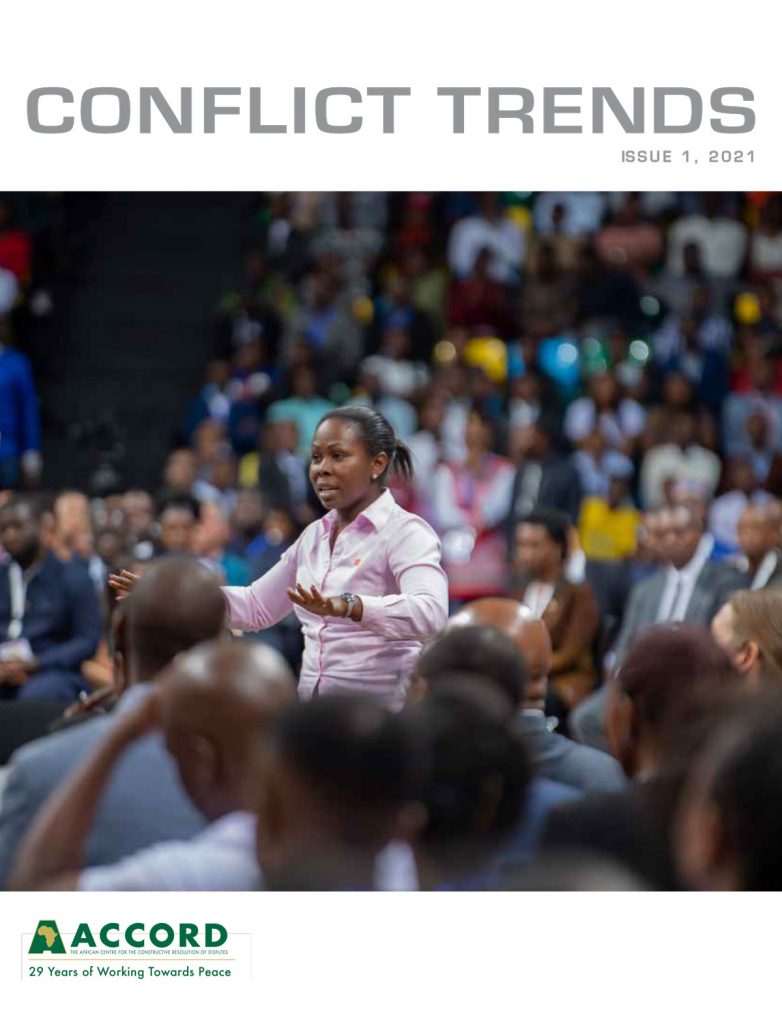
The current crisis in Ethiopia is complex, with deep historical fault lines, ongoing regional rivalries, an evolving global order and continuously shifting local, regional and global alliances that impact the balance of power. Those seeking to assist should not be quick to judge but should be quick to learn, and to play a constructive role when, and if, the parties are ready for impartial external assistance.
Conflict Trends – Special Edition 2020
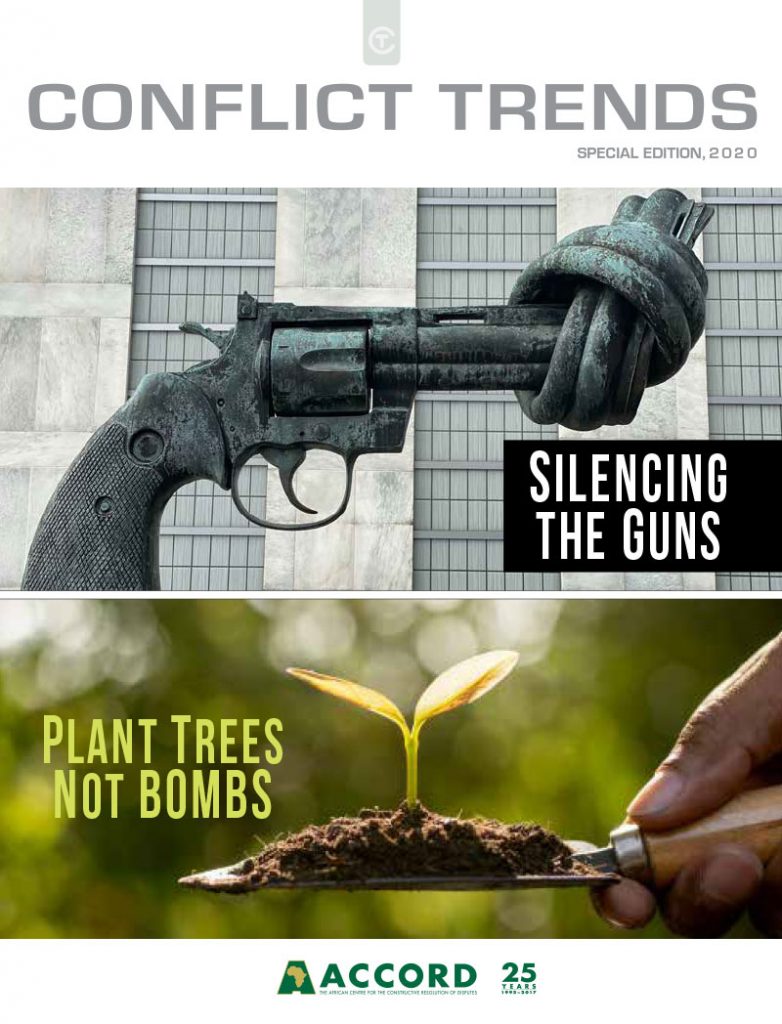
If there was ever a moment in the history of humanity that calls for the deepening of dialogue across different nations, generations, and cultures about a world that we want to see, the year 2020 is that moment. Instead of allowing the disruptions created by the emergence and spread of COVID-19 to weaken our collective resolve to find creative solutions to the challenges we commonly face, we ought to be inspired by the creativity, the innovations, and the resilience that ordinary people across the world have attempted to create.
